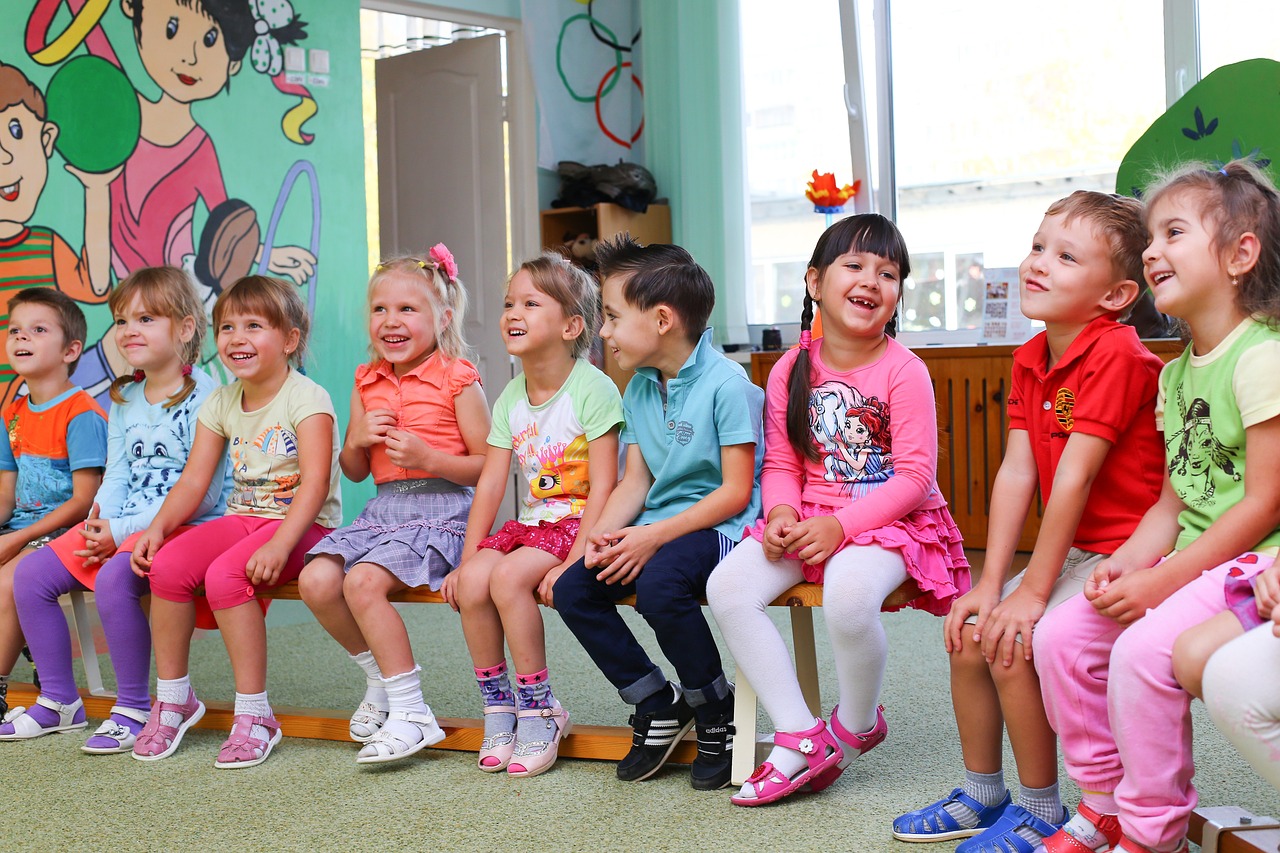Divorce – that unexpected twist in your happily-ever-after that even Disney didn’t see coming. But here you are, rewriting your family story, and amidst the plot twists and turns, there’s a pint-sized character who’s just as confused as you are: your child.
Setting the Stage for Open Communication (or How to Talk Without Really Talking)
Let’s face it, discussing divorce with your child can feel like trying to explain quantum physics to a toddler. But fear not! This isn’t about breaking down complex legal jargon; it’s about open, honest, and age-appropriate communication.
Choose the Right Time and Place
Ideally, this isn’t during the halftime of their favorite cartoon or five minutes before bedtime. Pick a quiet moment when your child is likely to be receptive. Maybe during a calm car ride or a peaceful picnic in the park – you know, those rare moments when the planets align.
Keep it Simple, Silly (K.I.S.S.)
Use words they’ll understand. No need to delve into the nitty-gritty of why “irreconcilable differences” became the third wheel in your marriage. A simple, “Mommy and Daddy have decided to live apart because we think it’s the best way for us all to be happy,” will suffice.
It’s Not Their Fault (Repeat, Repeat, Repeat)
Kids have a fantastic way of thinking the world revolves around them. Ensure they understand that the divorce is not their fault. They didn’t cause it by refusing to eat broccoli or by drawing on the walls. This was a grown-up decision.
Encourage Questions (Even the Tough Ones)
Be ready for a barrage of questions, ranging from the practical (“Where will I sleep?”) to the profoundly heartbreaking (“Did you stop loving each other?”). Answer as honestly as you can, but it’s okay to say you don’t have all the answers right now.
Keep the Other Parent Involved
Unless there are safety concerns, encourage your child to maintain a healthy relationship with your soon-to-be ex. Phrases like “Your father is a llama with no sense of direction” or “Your mother is as emotionally available as a teaspoon” are best avoided.
Managing Transitions and Creating New Routines (or How to Turn Your Life Upside Down in a Fun Way)
So, you’ve broken the news, and now it’s time to steer this ship through the choppy waters of change. Fear not, because who doesn’t love a little upheaval in their daily routine?
Establishing New Norms
Remember those old routines you had? Well, it’s time to reinvent them! Create new rituals and traditions that your child can look forward to. Maybe it’s Taco Tuesdays with Dad or Storytime Saturdays with Mom. It’s like creating your own holiday calendar, but with less pressure and no need to buy gifts.
The Art of the Schedule
Kids thrive on predictability, and let’s be honest, so do adults. Make a schedule for when they’ll be with each parent. Put it up on the fridge. Make it colorful. Add stickers. It’s like a party planner, but for emotional stability.
Smooth Transitions
Moving between homes can be tough. Help your child pack and understand that they’re not leaving one home for another; they have two homes now. Twice the rooms to clean – lucky them!
Consistent Discipline
Try to maintain consistent rules and discipline between households. It’s like agreeing on the rules of a board game: it’s no fun if someone keeps changing them mid-game.
Self-Care is Family Care
Look after yourself. A happy, healthy parent means a happy, healthy child. Think of it as putting on your oxygen mask first before assisting others. Yes, even if that oxygen mask looks suspiciously like a bar of chocolate.
Supporting Your Child’s Emotional Journey (Or How to Be a Superhero in Pajamas)
Now let’s jump into the emotional rollercoaster – where feelings are the currency and your child is the richest person you know.
Be a Listening Ear
Sometimes, your child just needs to vent. They might be angry, sad, or even a bit relieved. All these feelings are as normal as your craving for coffee in the morning. Let them express themselves. You don’t always need to fix things; sometimes, just being there is enough.
Validate Their Feelings
This isn’t the time for a “When I was your age” story. Acknowledge their feelings. Say things like, “It’s okay to feel sad about this,” rather than, “Don’t be sad.” It’s like giving a medal for emotional bravery.
Seek Professional Help if Needed
If you sense your child is struggling more than usual, don’t hesitate to seek help. Talking to a counselor can be as beneficial as finding an extra life in a video game.
Keep the School in the Loop
Inform teachers or counselors about the changes at home. They’re like your co-pilots in this journey, helping navigate the academic skies.
Watch for Behavioral Changes
Like a detective with a magnifying glass, be on the lookout for changes in behavior, eating, or sleeping patterns. They’re clues to how your child is really coping.
Handling Your Own Emotions (or How to Be a Zen Master in the Midst of Chaos)
Congratulations, you’ve made it to the final chapter of our guide! Here’s where we talk about you – because, let’s face it, navigating your own emotional maze while being a pillar of strength for your child deserves its own superhero comic.
It’s Okay to Not Be Okay
First things first, give yourself permission to feel. Sad? Angry? Relieved? All of the above? Perfectly normal. Your emotions are like weather patterns – they’re bound to change, and it’s okay to have a cloudy day.
Find Your Support System
This is not the time to be an island. Reach out to friends, family, or support groups. Think of them as your personal cheerleading squad, pom-poms and all.
Self-Care Isn’t Selfish
Take time for yourself. Read that book you’ve been ignoring, join a yoga class, or simply binge-watch your favorite show. Self-care is like refueling your car; you can’t run on empty.
Keep a Journal
Pour your thoughts out on paper. It’s like having a conversation with yourself, minus the strange looks from others.
Professional Help? Why Not!
If the going gets tough, a therapist can offer tools and strategies to cope. Think of them as a personal trainer for your emotions.
Final Thoughts:
Every family’s story is unique, and there’s no one-size-fits-all approach. But with a little bit of humor, a lot of love, and an occasional cry in the shower, you can navigate this new chapter in your life. After all, as the saying goes, “Life is not about waiting for the storm to pass, but learning to dance in the rain.” And sometimes, that dance involves stepping on a few Lego bricks barefoot.
Pro Tips for Navigating Post-Divorce Parenting:
- Embrace Flexibility: Life post-divorce can be unpredictable. Be flexible with schedules and plans. Sometimes, the best moments come from impromptu ice-cream runs or last-minute movie nights.
- Create a Co-parenting Plan: If possible, work with your ex-partner to establish a co-parenting plan. This should cover everything from daily routines to how you’ll handle holidays and birthdays. Think of it as a treaty for maintaining peace in your newly divided kingdom.
- Avoid the Blame Game: It’s easy to slip into blaming your ex in front of your child. Resist the urge. Remember, your ex is not just your former spouse but also your child’s beloved parent.
- Celebrate the Small Wins: Did you manage to have a civil conversation with your ex? Did your child open up about their feelings? Celebrate these small victories. They’re the stepping stones to a healthier post-divorce family life.
- Keep Old Traditions, Start New Ones: Maintain some old family traditions to give your child a sense of continuity. But don’t be afraid to start new ones that reflect the new family dynamic.
- Don’t Rush into Introductions: If you start dating again, take your time before introducing someone new to your child. They’re still adjusting to a lot of changes.
- Seek Out Positive Role Models: Surround your child with positive influences and role models. This can include family members, teachers, or coaches – people who can provide additional support and guidance.
- Monitor Your Child’s Social Media: For older children, keep an eye on their social media use. It can be a source of support but also of stress, especially when they see other “perfect” families.
- Encourage Expressive Activities: Whether it’s art, music, sports, or writing, encourage your child to engage in activities that help them express and understand their emotions.
- Stay Positive About the Future: Reassure your child (and yourself) that while the present may be challenging, the future holds new opportunities for happiness and growth.
FAQs: Navigating Parenting Post-Divorce
Use simple, neutral language to explain the situation. Focus on the fact that adults sometimes decide not to live together anymore, and reinforce that both parents still love and care for the child. Avoid any negative comments about the other parent.
If you notice significant changes in behavior, mood, or academic performance that don’t improve over time, it might be a good idea to consult a child psychologist or counselor. Professional help can provide your child with the tools to process their emotions healthily.
Try to establish clear and respectful communication guidelines. Focus on discussing matters related to your child only. If face-to-face conversations are difficult, consider using email or a co-parenting app to communicate.
It’s normal to move on and start dating again, but be mindful of your child’s feelings. Introduce new partners gradually and only when the relationship is serious. Ensure your child doesn’t feel replaced or neglected.
Create a consistent routine across both homes as much as possible. Encourage your child to personalize their space in each house and reassure them that they have two places where they belong.
It’s crucial to repeatedly assure your child that the divorce is not their fault. Explain that adult relationships are complex and that the decision to divorce was about the parents, not the child.
Plan in advance and communicate with your ex-partner to avoid confusion. Consider alternating holidays or splitting the day. Focus on making the occasion joyful for your child, regardless of the logistics.
While having different parenting styles can be challenging, try to find common ground on major issues and be willing to compromise on smaller ones. Consistency is key, especially in rules and discipline.
Recognize that it’s normal to have these feelings. Seek support from friends, family, or a therapist. Remember that taking care of your emotional health is crucial for being a good parent.
Yes, children can emerge resilient and adaptable from divorce experiences. Focus on providing love, stability, and support, and use the situation as an opportunity to teach valuable life lessons about coping with change and adversity.



